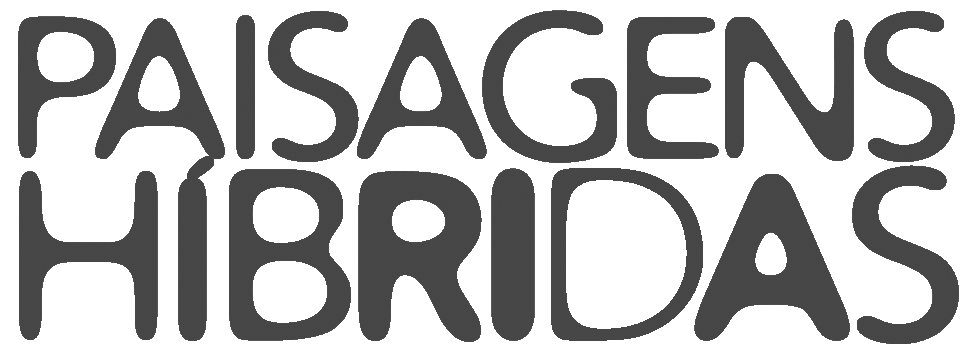NEW APPROACHES – OWH/22

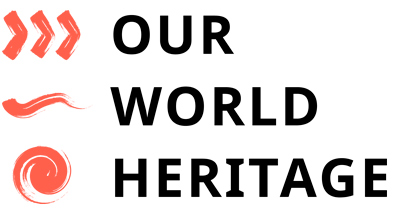
The transnational dialogues are a series of roundtables promoted by the New Heritage Approaches team since November 2020 as part of the activities of the Our World Heritage Initiative https://www.ourworldheritage.org/the_initiative/. The OWH initiative is building a collaborative network of civil society organizations, researchers, managers and professionals in the field of heritage with the intention of reflecting on and intertwining concepts, approaches and methods in common, in the context of peripheral countries, seeking to promote mutual listening, community involvement and exchange of knowledge and experiences concerning the conservation of cultural and natural heritage.
The first roundtable, held in November of 2020, focused on the Africa-Brazil dialogue and brought together researchers and heritage managers from South Africa, Angola, Mozambique and Brazil. The second roundtable, held in March 2021, focused on the Latin American universe, bringing together contributions from Colombia, Chile and Brazil. The contributions of the two roundtables complemented each other and pointed to the need to expand the concepts of landscape and heritage in relation to the choices of heritage values to be protected, recognizing other dimensions of landscape and heritage, and the need to incorporate social practices, uses and collective constructions in the daily lives of communities as a way of strengthening the role of heritage in the lives of the populations. They also pointed out the importance of strengthening collaboration between peripheral countries, bringing together different social segments, in addition to academia, in order to identify convergences and diversities in heritage and landscape conservation processes, promoting training in the field of heritage adapted to different peripheral realities.
These events were preparatory to the New Heritage Approaches Globinar (https://www.ourworldheritage.org/new_approaches/) during the month of June 2021, which reverberated voices from around the world and promoted debates on various topics related to landscape and heritage conservation.
Continuing this series of meetings, the 2022 Transnational Dialogues aim to celebrate the 50th anniversary of the World Heritage Convention, and to focus particularly on its Art. 5, paragraph a, which urges the need for cultural and natural heritage to play a role in the life of local communities.
The roundtables throughout 2022 will focus on three forces of everyday life with the issue of decoloniality as the background of the discussions: art, food and housing – which translate into powerful bets to include, incorporate and transform heritage into the daily life of communities, both in peripheral and central regions of the world.
According to ICCROM, today the term decolonization has amplified its meaning to much more than questioning the ideology of colonialism, including questioning the top down methodology of official knowledge production. Decolonize means embrace multiple perspectives and narratives of the different cultural contexts to try to develop together a world less segregate and a less hegemonic model of what is considered heritage. Recognizing the right of the marginalized and their historic struggle to remain in their territory and be what they are is also decolonizing.

These series of roundtables intend to stimulate the debate and expand the exchange and socialization of knowledge about innovative initiatives that are capable of modifying the relationships established in the territory, in the context of thinking about the decolonization of heritage.
Os diálogos transnacionais são uma série de mesas redondas promovidas pela equipe Novas Abordagens em Patrimônio (New Heritage Approaches) desde novembro de 2020 como parte das atividades do movimento Nosso Patrimônio Mundial (Our World Heritage https://www.ourworldheritage.org/the_initiative/). Para isso, estamos construindo uma rede colaborativa de organizações da sociedade civil, pesquisadores, gestores e profissionais do campo do patrimônio com a intenção de refletir sobre e entrelaçar conceitos, abordagens e métodos em comum, no contexto dos países periféricos, na busca de promover a escuta mútua, o envolvimento das comunidades e as trocas de saberes e experiências na preservação e conservação do patrimônio cultural e natural.
A primeira mesa redonda teve como foco o diálogo África-Brasil e reuniu pesquisadores e gestores do patrimônio da África do Sul, Angola, Moçambique e Brasil. A segunda mesa redonda, realizada em março de 2021, teve como foco o universo latino-americano, reunindo contribuições da Colômbia, do Chile e do Brasil. As contribuições das duas mesas redondas se complementaram e apontaram para a necessidade de ampliar os conceitos de paisagem e patrimônio em relação às escolhas de valores patrimoniais a serem protegidos, reconhecendo outras dimensões da paisagem e do patrimônio, e a necessidade de incorporar práticas sociais, usos e construções coletivas no cotidiano das comunidades como forma de fortalecer a função do patrimônio na vida das populações. Também apontaram a importância do fortalecimento da colaboração entre os países periféricos, reunindo diferentes segmentos sociais, além da academia, de forma a identificar convergências e diversidades nos processos de conservação do patrimônio e da paisagem, promovendo a capacitação no campo do patrimônio adaptada às diferentes realidades periféricas.
Estes eventos foram preparatórios para a realização do Globinar Novas Abordagens em Patrimônio (https://www.ourworldheritage.org/new_approaches/) durante o mês de junho de 2021, que reverberou vozes de todo o mundo e promoveu debates sobre diversos temas relacionados à conservação da paisagem e do patrimônio.
Dando continuidade a esta série de encontros, os Diálogos Transnacionais de 2022, têm como objetivo celebrar o 50º aniversário da Convenção do Patrimônio Mundial, e enfocar particularmente o seu Art. 5º, alínea a, que exorta a necessidade de o patrimônio cultural e natural terem uma função na vida das comunidades locais.
As mesas redondas ao longo de 2022 enfocarão três forças do cotidiano: arte, comida e habitação – que se traduzem em apostas potentes para incluir, incorporar e transformar o patrimônio em cotidiano vivido das comunidades, tanto das periféricas como das centrais.
De acordo com o ICCROM, hoje o termo decolonização ampliou seu significado para muito mais do que questionar a ideologia do colonialismo, incluindo questionar a metodologia de cima para baixo de produção de conhecimento oficial. Decolonizar significa abraçar múltiplas perspectivas e narrativas dos diferentes contextos culturais para tentar desenvolver juntos um mundo menos segregado e um modelo menos hegemônico do que é considerado patrimônio. Reconhecer o direito dos marginalizados e sua luta histórica de permanecer em seu território e ser o que são também é decolonizador.
Esta série de mesas redondas pretendem estimular o debate e ampliar a troca e a socialização de conhecimentos sobre iniciativas inovadoras capazes de modificar as relações estabelecidas entre território, sociedade e patrimônio.
Roundtable 1: Art, city and decoloniality
The roundtable Art, City and Decoloniality aims to reflect on the place of heritage in contemporaneity and, from this foundation, to problematize the possible alignments between art and city, considering, for that, the crossings that are revealed in the life of communities with their different social strata. Therefore, it is important to decode the symbols of the local culture, highlight the signs and meanings of the traditions of the ancestral peoples, without forgetting the ethnic aspects and the issues related to racialities and their repercussions in urban aesthetics. This agenda reopens the 2022 Transnational Dialogues with the following question:
What is the dimension of urban art and what are the fields of action of cultural manifestations in the conservation of heritage and urban landscape and how both move in an interdependent way when producing representations that contribute to expanding the multiplicity of perspectives and values to be bequeathed to future generations, considering factors related to ancestry, interculturality and intersectoriality?
In contemporary times, urban art, in its multiple manifestations, reaffirms itself as a powerful vehicle for the production and reverberation of narratives in the heritage sphere, which, in turn, evokes in the urban landscape the legacies of the local context and revives the spirit of place. These points are universal aspects to be respected in World Heritage sites. Similarly, conservation becomes synonymous with decolonization, insofar as it promotes equity and justice through coexistence and dialogue between the various social segments without disregarding the diversity of ethnicities and racialities that form the socio-cultural and socio-spatial fabric. Recognition of the city’s art, culture and history, therefore, becomes key for communities to value local heritage and identity.
Based on the national and international dialogues that took place in the forums of the Our World Heritage Initiative, held in 2021, alternative forms of interpretation, application and updating of concepts and paradigms adopted in heritage conservation will be discussed, in particular, those aimed at the integration of art and cultural manifestations in the urban space. In this sense, it is important to note that The production of urban art in peripheral countries still shows reflections of westernized views, based on experiences rooted in the culture of the northern hemisphere, resulting, to a large extent, from the unfolding of geopolitical and colonialist processes that were established and practiced in Southern hemisphere countries for centuries.
Faced with the initial question, the purpose of this debate is to reflect on the movements and displacements produced by concepts related to representations, visualities and cultural manifestations linked to artistic production, to the urban landscape and to theories focused on decolonial studies, such as expression and recognition of the social, cultural and territorial rights of marginalized social strata, traditional societies and indigenous peoples. The debate is part of and will open the I International Seminar EBA URBE: Fall from the sky – refuges, habitable futures and reinvention of cities organized by MIdiaLab-EBA and by the Hybrid Landscapes Research Group of the School of Fine Arts at the Federal University of Rio de Janeiro – EBA/UFRJ, by the Professional Masters in Design and Heritage, at the Faculty of Architecture and Urbanism of the Federal University of Rio de Janeiro – UFRJ, by the Council of Architecture and Urbanism of the State of Rio de Janeiro, the Institute of Architects of Brazil, and by the International Council of Portuguese-Speaking Architects, with support of the Group of Studies and Research in Politics and Territory – GEOPPOL/IGEO/UFRJ, Centro de Patrimonio Cultural de la Universidad Católica de Chile and the Foro Latinoamericano de Ciencias Ambientales.
Mesa-redonda 1: Arte, cidade e decolonialidade
A mesa redonda Arte, Cidade e Decolonialidade tem como objetivo refletir sobre o lugar do patrimônio na contemporaneidade e, a partir desse fundamento, problematizar os alinhamentos possíveis entre arte e cidade, considerando para tanto, os atravessamentos que se revelam na vida das comunidades com suas distintas camadas sociais. Para tanto, importa decodificar os símbolos da cultura local, evidenciar os signos e significados das tradições dos povos ancestrais, sem esquecer dos aspectos étnicos e das questões relativas às racialidades e seus rebatimentos na estética urbana. Esta pauta reabre os Diálogos Transnacionais de 2022 com a seguinte indagação:
Qual a dimensão da arte urbana e quais os campos de atuação das manifestações culturais na conservação do patrimônio e da paisagem urbana e como ambos movimentam-se de forma interdependente ao produzir representações que contribuem para ampliar a multiplicidade de perspectivas e valores a serem legados às gerações futuras, considerando fatores relativos à ancestralidade, à interculturalidade e à intersectoralidade?
Na contemporaneidade, a arte urbana, nas suas múltiplas manifestações, reafirma-se como um potente veículo de produção e reverberação de narrativas na esfera patrimonial que, por sua vez, evoca na paisagem urbana as heranças do contexto local e reaviva o espírito do lugar, pontos esses que são aspectos universais a serem respeitados nos sítios do Patrimônio Mundial. De maneira análoga, a conservação torna-se sinônimo de decolonização, na medida em que promova equidade e justiça por meio da coexistência e do diálogo entre os diversos segmentos sociais sem desconsiderar a diversidade de etnias e racialidades que formam o tecido sociocultural e socioespacial. O reconhecimento da arte, da cultura e da história da cidade, portanto, torna-se chave para a valorização da herança e da identidade locais pelas comunidades.
A partir dos diálogos nacionais e internacionais ocorridos nos fóruns da iniciativa Nosso Patrimônio Mundial (Our World Heritage), realizados em 2021, serão colocadas em discussão formas alternativas de interpretação, aplicação e atualização de conceitos e paradigmas adotados na conservação do patrimônio, em particular, aqueles voltados à integração da arte e das manifestações culturais no espaço urbano. Nesse sentido, importa observar que a produção de arte urbana nos países periféricos ainda apresenta reflexos de visões ocidentalizadas, calcadas em experiências enraizadas na cultura do hemisfério norte, resultante, em grande medida, dos desdobramentos de processos geopolíticos e colonialistas que foram estabelecidos e praticados nos países do hemisfério sul.
Diante da pergunta inicial, a proposta desta mesa de debates é refletir sobre os movimentos e deslocamentos produzidos por conceitos relacionados às representações, visualidades e manifestação culturais atreladas a produção artística, à paisagem urbana e às teorias voltadas aos estudos decoloniais, como expressão e reconhecimento dos direitos sociais, culturais e territoriais das camadas sociais marginalizadas, das sociedades tradicionais e de grupos de povos indígenas. O debate insere-se e abrirá o I Seminário Internacional EBA URBE: Queda do céu – refúgios, futuros habitáveis e reinvenção das cidades organizado pelo MIdiaLab-EBA e pelo Grupo de Pesquisas Paisagens Híbridas da Escola de Belas Artes- EBA-UFRJ, pelo Mestrado Profissional em Projeto e Patrimônio, da Faculdade de Arquitetura e Urbanismo-UFRJ, pelo Conselho de Arquitetura e Urbanismo do Estado do Rio de Janeiro, pelo Instituo de Arquitetos do Brasil e pelo Conselho Internacional dos Arquitectos de Língua Portuguesa, com apoio do Grupo de Estudos e Pesquisa em Política e Território – GEOPPOL/IGEO/UFRJ, Centro de Patrimonio Cultural de la Universidad Católica de Chile e do Foro Latinoamericano de Ciencias Ambientales.
29 August 2022, 10h00 (Brasilia time) | 29 de agosto de 2022, 10h00
| 10H00 (Brasilia time) | ABERTURA OPENING APERTURA | Profa. Mônica Bahia Schlle | PGPP-FAU/UFRJ Prof. Rubens de Andrade |EBA-PROARQ-FAU/UFRJ Profa. Michelle Sales| EBA-UFRJ |
| MODERADORES MODERATORES | Shahid Vawda Paula Camargo |
|
| PALESTRANTES SPEAKERS PONENTES | Monica Lacarrieu | ARGENTINA Novos descentramentos e encruzilhadas em relação à arte e ao patrimônio nas cidades periféricas contemporâneas: colonialidade e/ou decolonialidade? New decentralizations and crossroads in relation to art and heritage in contemporary peripheral cities: coloniality and/or decoloniality? Nuevos descentramientos y encrucijadas en relación al arte y el patrimonio en las ciudades periféricas contemporáneas: ¿colonialidad y/o decolonialidad? |
|
| Raphael Abdulmajid Ighombo | KENYA Praticando a decolonialidade em museus Practicing decoloniality in Museums Practicando la decolonialidad en los museos |
||
| Marco Polo Juárez Cruz | MÉXICO Um novo olhar para o passado: o projeto Mural do Hospital Harlem A new look at the past: the Harlem Hospital Mural Project (1935-2012) Una Nueva Mirada al Pasado: El Proyecto Mural del Hospital de Harlem (1935-2012) |
||
| Mariana Vieira de Brito | BRAZIL Graffiti: mancha ou manifestação insurgente na paisagem? Graffiti: stain or insurgent manifestation in the landscape? Graffiti: ¿mancha o manifestación insurgente en el paisaje? |
||
| Rui Leão | MACAU Descolonizar o conhecimento: contestações ao projecto colonial Decolonizing knowledge: challenges to the colonial project Descolonizar el saber: desafíos al proyecto colonial |
Roundtable 2: City, food, and heritage
City is heritage. Food is heritage. How is the relationship between the actions, knowledges and experiences of feeding and food production in the city and the valorization of urban heritage? How does food contribute to expand the multiplicity of perspectives and values related to ancestry, interculturality and intersectorality to be bequeathed to future generations?
The City, Food and Heritage roundtable aims to reflect on the place of heritage in the daily lives of communities and, based on this foundation, identify possible alignments between food and the city, as a collective territory of exchanges and experiences, considering the transversal cultural aspects that are revealed in the life of communities with their different social strata and the processes of global mobility between populations and, mainly, inter-regional flows.
Representations, practices, choice of ingredients, ways of producing and preparing food are intrinsically associated with communities, social groups and their living territories. Each region has its secrets, its ways of doing things. The knowledge of food is an intangible asset of people’s culture and deserves to be recognized as a heritage by society and by the protection and guardianship agencies. Food, drinks and culinary knowledge, sometimes associated with festivals and rituals where they are collectively shared are part of the collection of goods designated as world heritage by UNESCO.
At the national level, an interesting example was the recognition of the traditional agricultural system of the quilombola communities of Vale do Ribeira (SP), registered in 2018 by the Instituto do Patrimônio Histórico e Artístico Nacional – IPHAN. The set of techniques on how to use agricultural resources inherited from African and indigenous knowledge has been passed on from generation to generation, and, more recently, has been consolidated as a traditional agricultural knowledge and technique through scientific research.
In addition to this recognition of traditional knowledge of food in the context of agriculture, the rural-city relationship itself undergoes significant transformations, with the arrival of urban agriculture, and may bring other issues to be considered in the selection of heritage assets.
Food is also a powerful vehicle for the production and reverberation of narratives in the heritage sphere, as it evokes the heritage of the local context and revives the spirit of the place, universal aspects that must be respected and valued in World Heritage sites. Recognition of food, history, knowledge and ways of eating is one of the keys to valuing heritage and raising awareness of local identity by communities.
The debate is part of the discussions on New Heritage Approaches as part of the activities of the Our World Heritage movement and will be promoted by the Professional Master in Design and Heritage, from the Faculty of Architecture and Urbanism – UFRJ, by the Hybrid Landscapes Research Group of the School of Fine Arts- EBA-UFRJ, by the Group of Studies and Research in Politics and Territory – GEOPPOL/IGEO/UFRJ and by the Architecture and Urbanism Council of the State of Rio de Janeiro and by the International Conference of Portuguese-Speaking Architects, with support from the Instituto dos Arquitetos do Brasil, the Centro de Patrimonio Cultural de la Universidad Católica de Chile and the Foro Latinoamericano de Ciencias Ambientales.
21 September 2022, 10h00 (Brasilia time) | 21 de Setembro de 2022, 10h00
| 10H00 (Brasilia time) | ABERTURA OPENING APERTURA | Profa. Mônica Bahia Schlle | PGPP-FAU/UFRJ |
| Introdução | Francesco Bandarin Sonia Rampim |
|
| PALESTRANTES SPEAKERS PONENTES | Juliana Florêncio | Brasil Comer e cozinhar na cidade: hibridismo e patrimônio cultural |
|
| Loreto Carrizo Sánchez | Chile Rutas gastronómicas, como estrategias de desarrollo e intercambio internacional |
||
| Tihui Campos | México Sanar a las ciudades desde el saber-hacer rural. La importancia de las culturas alimentarias indígenas y afrodescendiente en las ciudades de México |
||
| Ana Saraiva | Portugal Campos, casas e cozinhas: imagens da dieta mediterrânica em Portugal |
||
| Gabriella Pieroni | Brasil Inventarios Participativos da Cultura Alimentar Slow Food: uma ferramenta decolonial |
||
| Mediação | Sonia Rampim | Brasil |
Mesa-redonda 2: Cidade, Comida e Patrimônio
Cidade é patrimônio. Comida é patrimônio. Como se dá a relação entre os fazeres, os saberes e as experiências da alimentação e da produção dos alimentos na cidade e a valorização do patrimônio urbano? Como a comida contribui para ampliar a multiplicidade de perspectivas e valores relativos à ancestralidade, à interculturalidade e à intersectoralidade a serem legados às gerações futuras?
A mesa redonda Cidade, Comida e Patrimônio tem como objetivo refletir sobre o lugar do patrimônio no dia a dia das comunidades e, a partir desse fundamento, identificar os alinhamentos possíveis entre comida e cidade, enquanto território coletivo de trocas e vivências, considerando as transversalidades culturais que se revelam na vida das comunidades com suas distintas camadas sociais e os processos de mobilidade global entre as populações e, principalmente, os fluxos inter-regionais.
Representações, práticas, escolha dos ingredientes, formas de produção e de preparo dos alimentos estão intrinsicamente associadas a comunidades, grupos sociais e a seus territórios de vivência. Cada região detém seus segredos, seus modos de fazer. Os saberes da alimentação se configuram como bens intangíveis da cultura dos povos e merecem ser reconhecidos como patrimônio pela sociedade e pelos órgãos de proteção e tutela. Alimentos, bebidas e saberes culinários, por vezes associados a festas e rituais onde são partilhados coletivamente, também fazem parte do acervo de bens designados patrimônio mundial pela UNESCO.
Em âmbito nacional, um exemplo interessante foi o reconhecimento do sistema agrícola tradicional das comunidades quilombolas do Vale do Ribeira (SP), registrado em 2018 pelo Instituto do Patrimônio Histórico e Artístico Nacional – IPHAN. O conjunto de técnicas de como utilizar os recursos agrícolas herdado dos conhecimentos africanos e indígenas foi passado de geração a geração, e, mais recentemente, vem se consolidando como saber e técnica tradicional de agricultura por meio de pesquisas científicas.
Além deste reconhecimento sobre os saberes tradicionais da alimentação no âmbito da agricultura, a própria relação campo-cidade passa por transformações significativas, com o chegada da agricultura urbana, e pode trazer outras questões a serem consideradas na seleção de bens patrimonializáveis.
A comida é também veículo potente de produção e reverberação de narrativas na esfera patrimonial, pois evoca as heranças do contexto local e reaviva o espírito do lugar, aspectos universais que devem ser respeitados e valorizados nos sítios do Patrimônio Mundial. O reconhecimento da comida, da história, dos saberes e das formas de alimentação é uma das chaves para a valorização da herança e conscientização da identidade locais pelas comunidades.
O debate insere-se nas discussões sobre as Novas Abordagens em Patrimônio (New Heritage Approaches) como parte das atividades do movimento Nosso Patrimônio Mundial (Our World Heritage) e será promovido pelo Mestrado Profissional em Projeto e Patrimônio, da Faculdade de Arquitetura e Urbanismo-UFRJ, pelo Grupo de Pesquisas Paisagens Híbridas da Escola de Belas Artes- EBA-UFRJ, pelo Grupo de Estudos e Pesquisa em Política e Território GEOPPOL/IGEO/UFRJ e pelo Conselho de Arquitetura e Urbanismo do Estado do Rio de Janeiro e pelo Conselho Internacional dos Arquitectos de Língua Portuguesa, com apoio do Instituto dos Arquitetos do Brasil, do Centro de Patrimonio Cultural de la Universidad Católica de Chile e do Foro Latinoamericano de Ciencias Ambientales.
21 September 2022, 10h00 (Brasilia time) | 21 setembro 2022, 10h00
The program will be released soon.
Roundtable 3: City, housing and heritage: social conflicts, citizenship and good living
The City, Housing and Heritage roundtable aims to reflect on the place of heritage in the contemporary city, in the light of decolonial perspective and deepen the crossings with the issue of housing as a land use, which reveals itself to be preponderant in the life of communities in their different social strata. It is intended to publicize initiatives that have being carried out in Brazil and abroad for the conservation and recovery of heritage with a focus on local knowledge and discuss management experiences and collective strategies of civil society on the subject of social housing in historic centers, in protected areas or in heritage buildings or buildings of interest to the heritage.
The accelerated urban transformation, especially in the metropolitan regions, continues to generate impacts and substantive changes in the ways of inhabiting cities. Among the multiple changes experienced in the urban fabric and, consequently, in the social body that inhabits it, it is possible to highlight processes related to social segregation, the emptying and degradation of central areas, gentrification and the modification of the economic dynamics of the land and real estate markets, both formal and informal. The blatant housing shortage in Brazilian and other peripheral cities, especially among the poorest strata of the population, raises questions related to the permanence and coexistence of different social groups in central areas, as well as socio-environmental conflicts in territories protected by their environmental and landscape attributes. Thus, the debate on the use of urban built heritage for housing or other social uses and on the forms of financing to enable access to decent housing becomes crucial.
Solutions that inspire transformations in form, uses and stances and promote the sharing of responsibilities in safeguarding and conserving the collective heritage, to help conserve it. Initiatives for the reuse of built heritage adapted to contemporary needs; urban regeneration projects in protected areas; economic instruments for heritage recovery and technical assistance actions for the conservation of the inhabited heritage will be some of the themes of discussion.The debate is part of the discussions on New Heritage Approaches as part of the activities of the Our World Heritage Movement and will be promoted by the Institute of Architects of Brazil, by the Professional Master in Design and Heritage, at the Faculty of Architecture and Urbanism of the Federal University of Rio de Janeiro – UFRJ, by the Council of Architecture and Urbanism of the State of Rio de Janeiro and by the International Council of Portuguese-Speaking Architects, with support of the Group of Studies and Research in Politics and Territory – GEOPPOL/IGEO/UFRJ, of the Centro de Patrimonio Cultural de la Universidad Católica de Chile and the Foro Latinoamericano de Ciencias Ambientales.
Mesa-redonda 3: Cidade, moradia e patrimônio: conflitos sociais, cidadania e bem viver
A mesa-redonda Cidade, moradia e patrimônio: conflitos sociais, cidadania e bem viver tem como objetivo refletir sobre o lugar do patrimônio na cidade contemporânea e aprofundar os atravessamentos com a questão do uso habitacional, que se revela preponderante na vida das comunidades em suas distintas camadas sociais. Pretende-se divulgar iniciativas que estão sendo realizadas no Brasil e outros países para a conservação e recuperação do patrimônio e discutir experiências de gestão, planos urbanos, ações, intervenções e estratégias coletivas da sociedade civil sobre o tema da moradia social em centros históricos, em áreas protegidas ou em edificações patrimonializadas ou de interesse para o patrimônio.
A acelerada transformação ubana no Brasil e no mundo, sobretudo nas regiões metropolitanas, segue gerando impactos e alterações substantivas nas formas de habitar as cidades. Entre as múltiplas mudanças vivenciadas no tecido urbano e, consequentemente, no corpo social que o habita, é possivel destacar processos relacionados à segregação social, ao esvaziamento e degradação das áreas centrais, à gentrificação e à modificação da dinâmica econômica dos mercados fundiário e imobiliário, tanto formais quanto informais. A flagrante carência habitacional nas cidades brasileiras e em outras cidades periféricas mundo à fora, sobretudo entre as camadas mais pobres da população, coloca na ordem do dia questões relacionadas à permanência e à conviviabilidades de grupos sociais diversos nas áreas centrais, como também os conflitos socioambientais nos territórios protegidos por seus atributos ecológicos e paisagísticos. Com isso, o debate sobre o aproveitamento do patrimônio edificado urbano para o uso habitacional ou outros usos sociais e sobre as formas de financiamento para viabilizar o acesso à moradia digna torna-se crucial.
Neste sentido, a mesa-redonda pretende estimular o debate e ampliar a troca de saberes e a socialização de conhecimento sobre iniciativas inovadoras, que sejam capazes de modificar as relações firmadas no ambiente urbano, sobretudo, no âmbito do pensar o patrimônio, a moradia e a cidade. Soluções que inspirem transformações na forma, nos usos e nas posturas e promovam o compartilhamento de responsabilidades na salvaguarda e na conservação do patrimônio coletivo, para ajudar a conservá-lo. Iniciativas de reaproveitamento do património edificado adaptado às necessidades contemporâneas; projetos de regeneração urbana em áreas protegidas; instrumentos econômicos de recuperação do patrimônio e ações de assistência técnica para a conservação do patrimônio habitado serão alguns dos temas de discussão.
O debate insere-se nas discussões sobre as Novas Abordagens em Patrimônio (New Heritage Approaches) como parte das atividades do movimento Nosso Patrimônio Mundial (Our World Heritage) e será promovido pelo Instituto dos Arquitetos do Brasil e pelo Mestrado Profissional em Projeto e Patrimônio, da Faculdade de Arquitetura e Urbanismo-UFRJ, pelo Conselho de Arquitetura e Urbanismo do Estado do Rio de Janeiro e pelo Conselho Internacional dos Arquitectos de Língua Portuguesa, com apoio do pelo Grupo de Pesquisas Paisagens Híbridas da Escola de Belas Artes- EBA-UFRJ, do Grupo de Estudos e Pesquisa em Política e Território – GEOPPOL/IGEO/UFRJ, do Centro de Patrimonio Cultural de la Universidad Católica de Chile e do Foro Latinoamericano de Ciencias Ambientales.
19 October 2022 (10h00 Brasilia time) | 19 outubro de 2022, 10h00
The program will be released soon.
Participants
| Speakers/Palestrantes | |
 | Ana Saraiva | Doutorada em antropologia (especialidade de políticas e imagens da cultura e museologia) e mestre em museologia e património pela Universidade Nova de Lisboa – Faculdade de Ciências Sociais e Humanas. Investigadora do Centro em Rede de Investigação em Antropologia (CRIA). Participa em projetos de investigação e valorização patrimonial (material e imaterial), com várias publicações e participações em encontros científicos. Programou e dirigiu o Museu de Ourém, chefiou a divisão de cultura nos municípios de Ourém e Leiria. É antropóloga na Direção-Geral do Património Cultural. |
 | Gabriella Pieroni | Historiadora, mestre em Preservação do Patrimônio Cultural pelo Instituto do Patrimônio Histórico Artístico Nacional (IPHAN) e doutoranda em gestão da cultura e patrimônio na Universidade de Barcelona. Suas investigações envolvem políticas culturais, preservação do patrimônio cultural imaterial e alimentar, segurança e soberania alimentar e nutricional no Brasil e práticas agroalimentares tradicionais. Atualmente é diretora da Associação Slow Food Brasil e ativista da Rede Slow Food Brasil. Tem experiência na elaboração de inventários participativos em comunidades tradicionais produtoras de alimentos, assim como em educação patrimonial e alimentar e mobilização social para o reconhecimento e salvaguarda do patrimônio agroalimentar. |
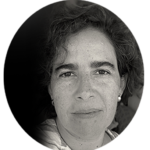 | Loreto Carrizo Sánchez | Emprendedora social, publicista de formación y Antropóloga de oficio. Con más de 24 años de experiencia en el mundo de la gestión de instituciones sin fines de lucro y la vinculación con el medio. Especializada en áreas de desarrollo territorial con identidad cultural para iniciativas o requerimientos de desarrollo/vinculación comunitaria. Habilidades comunicacionales que se orientan a la generación de confianzas y diálogo, propendiendo el encuentro entre comunidad e institución. Emprendedora social. Amante de la diversidad cultural, de los fuegos y del -fantástico- rito de las cocinas locales y comunitarias. Fundadora y Directora Ejecutiva de Fundación Rondó, institución orientada al desarrollo local desde la identificación y puesta en valor del patrimonio, con presencia en diversas regiones del país en colaboración y gestión con instituciones del estado y empresas privadas. Diplomada en Desarrollo Territorial Rural con Identidad Cultural, impartido por RIMISP y Facultad de Economía de la Universidad Católica del Perú. Co -Editora de la publicación: Manual de Animación Sociocultural de Fundación Ideas para el Consejo Nacional de la Cultura y de las Artes, 2010 -manual de implementación de programas para el desarrollo local, con elementos artísticos-culturales, gestión cultural, emprendimiento, patrimonio y sostenibilidad. |
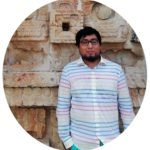 | Marco Polo Juárez Cruz | Es Maestro en Historia del Arte por la Universidad Nacional Autónoma de México. De 2015 a 2019 fue Jefe del Departamento de Exposiciones en el Museo Nacional de Culturas Populares. En 2019 inició un Doctorado en Historia del Arte en University of Maryland, especializándose en Arte Moderno en Latinoamérica y Arte de los Estados Unidos (1890-1970). |
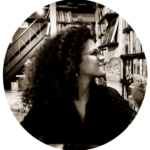 | Mariana Vieira de Brito | Geógrafa (UFRJ), Doutora em Geografia pela Universidade Federal do Rio de Janeiro (UFRJ), Mestre em Geografia pela Universidade Federal do Rio de Janeiro (UFRJ). Atuou como Docente I na Secretaria de Estado de Educação do Rio de Janeiro (SEEDUC) entre (2012 - 2016) e no Instituto Gay Lussac entre (2017 - 2021). Integra o Grupo de Estudos e Pesquisas em Política e Território – Geoppol desde a graduação. No doutorado, pesquisou as políticas públicas de patrimônio em Olinda e participou entre 2015/2016 do programa doutorado sanduíche na Universidade Paris IV - Sorbonne. Realizou estágio pós-doutoral na Universidade Estadual do Ceará, no âmbito do Laboratório de Estudos em Geografia Cultural - LEGEC. Ao longo da carreira dedicou-se aos temas: Geografia e Patrimônio, Arte urbana, Gestão do Território, Políticas Culturais, entre outros. Atualmente é professora do CEFET-RJ. |
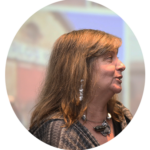 | Monica Lacarrieu | Dra. en Antropología Social, UBA. Investigadora Principal CONICET (Consejo Nacional de Investigaciones Científicas y Tecnológicas), Profesora Titular Universidad de Buenos Aires. Directora del Programa Antropología de la Cultura Urbana. Directora de Proyectos CONICET, Agencia de Ciencia y Tecnología, UBA vinculados a la creatividad urbana, el arte y el patrimonio y la decolonialidad. Directora de la Carrera Habitat y Pobreza Urbana, UBA y Directora de la Carrera de Especialización en Gestión Cultural, Universidad Nacional de Córdoba. Facilitadora de la Red Global de la Convención 2003 de Patrimonio Inmaterial. Fue Directora de la Maestría en Cultura Pública, Universidad Nacional de las Artes (2017-21). Fue Comisionada y Vicerrectora de Investigación y Posgrado, Universidad de las Artes Guayaquil, Ecuador (2016-18). Fue Directora Académica del Instituto de Cultura Pública, Ministerio de Cultura de la Nación (2013-15). Ha participado de numerosos eventos académicos nacionales e internacionales. Ha publicado artículos en revistas nacionales e internacionales, capítulos de libros y libros referidos a las temáticas de cultura urbana. |
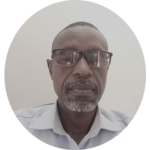 | Raphael Abdulmajid Ighombo |Is an employee of National Museums of Kenya and is the Head of Education and Public Programs Department of Fort Jesus World Heritage site. He holds a Diploma of Special Education, Bachelors of Education from Kampala International University and a Masters of World Heritage Sites and Cultural Projects management from ITC-ILO, University of Turin, Italy. He also has undergone several training in Exhibition design and Education from the British Museum & Getty foundation.He worked with the Sultanate of Oman in face-lifting the exhibition and interpretation of Fort Jesus in February 2017. He has been a member of researchers and developers of permanent Exhibitions in Rabai Museum, the KPA Maritime museum, the upcoming National Mashujaa Museum among other exhibitor projects. He supervises attachment students on Tour guiding and Tourism management from different colleges in the country. He also trains foreign students in Kiswahili language at National Museums of Kenya heritage training Institute in Mombasa. Mr. Raphael has a background of teaching in primary and secondary school and has been a principal of three schools before joining the museums. He completed his teacher training at High ridge Teachers College Parklands, Nairobi in 1989 and was posted to Lamu as a P1 teacher and later became a Principal of several schools in Lamu, Mombasa and Nairobi. He was elected as an official in Lamu Teachers Sacco in different capacity as follows: Supervisory Committee chairperson, Secretary and Treasurer since 1996 to 2010. Mr. Igombo is a senior KNEC examiner of English paper which he has done since 1996 to date. His position is Assistant Chief Examiner in KCPE exams. |
 | Rui Miguel Rebelo Leão | His practice covers architectural and urban planning projects, mostly in the region of Macau. He is active in architectural teaching and editorial work related with the fields of heritage and urbanism.He lived in the Azores, in Lisbon, São Tomé e Príncipe and currently, in Macau. He got his licentiate degree in Architecture in FAUP Porto School of Architecture, Portugal, in 1993, and Doctoral degree in Architecture and Urbanism at RMIT, the Royal Melbourne Institute of Technology, in Australia in 2019. He is a founder and partner of LBA Architecture and Planning, alongside Architect Carlotta Bruni, which has been mostly developing projects on large infrastructure, public buildings and public space for the Macau Government since 1999, alongside private housing developments. Since 1996, he developed his vast project activity in Macau and China, in the architectural, landscape and urban planning fields: his work includes the Nam Van Square, awarded with the Arcasia Golden Medal 2005-06, the Sai Van Urban Park, awarded with the AAM Golden Medal and the Arcasia Honorable Mention in 2009, both in co authorship with Manuel Vicente and Carlotta Bruni, the Reading Room for the Macau Portuguese School with a jury commendation for innovation for the UNESCO Asia-Pacific heritage Awards in 2012, the Fai Chi Kei public housing scheme, awarded for 100 Architects of 2019 by the UIA/KIRA, and the renovation of the Moorish Barracks, included on the list UNESCO World Heritage. He is the president of CIALP (International Council of Portuguese Speaking Architects) for 2019-2022, and president of Docomomo Macau, an international organization dedicated to the conservation and documentation of heritage, and a visiting Professor at the Macau City University (UCM) for the Faculty for Innovation and Design. |
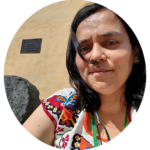 | Tihui Campos | Doutora em Estudos Latino-Americanos pela UNAM e professora da Faculdade de Filosofia e Letras da UNAM e da Universidade Sor Juana Claustro. Atualmente trabalha como funcionária pública em questões de patrimônio alimentar e patrimônio cultural tangível e imaterial do México. Colaborou em vários livros e artigos sobre governança alimentar, interculturalidade, soberania e patrimônio. Ela é membro de uma cooperativa de café e conselheira de várias organizações camponesas em questões de justiça de gênero. |
| Moderators/Debatedores | |
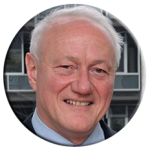 | Francesco Bandarin | Arquiteto e Urbanista, com especialização em Conservação Urbana. Foi Professor de Planejamento Urbano e Conservação Urbana na Universidade de Veneza (IUAV) de 1980 a 2016. De 2000 a 2010, foi Diretor do Centro do Patrimônio Mundial da UNESCO e Secretário da Convenção do Patrimônio Mundial. De 2010 a 2018 atuou como Diretor-Geral Adjunto da UNESCO para a Cultura. |
 | Paula de Oliveira Camargo| Arquiteta Urbanista (FAU/UFRJ), Mestra em Bens Culturais e Projetos Sociais (CPDOC/FGV), Doutora em design (Esdi/UERJ) e pesquisadora filiada ao Laboratório de Design e Antropologia da Esdi (LaDA). Autora do livro As cidades, a cidade, política e arquitetura no Rio de Janeiro (Folha Seca, 2012); co-organizadora do livro Design e/é Patrimônio (PCRJ, 2012). Servidora pública da Prefeitura do Rio, Paula atua como Gerente do Centro Carioca de Design no Instituto Rio Patrimônio da Humanidade. |
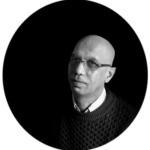 | Shahid Vawda | Graduated from the universities of Durban-Westville (BA), Queens (Belfast)(MA) and KwaZulu-Natal (PhD). Before taking up academic positions he worked in the trade union movement and at the educational NGO, the SACHED Trust in the 1980s, and as consultant researcher for the post-1994 local, provincial and national governments (land reform, housing, informal settlements, forestry re-structuring and heritage). His academic teaching and research has been at various universities in South Africa, some African countries and abroad, including participation in some UNESCO and International Council of Museums (ICOM) research workshops related to culture, heritage and diversity. He held positions as head of the departments of Anthropology at the Universities of Durban-Westville and Witwatersrand, and was the Head of the School of Social Science at the University of Witwatersrand. He has been active on the boards of the International Council of Museums committee for history and archaeology (ICMAH), and the local South Africa ICOM committee, the Public Affairs Research Institute, Centre for Critical Diversity Studies, African Centre for Migration and Society and the Wits Institute for Social and Economic Research and was part of the Department of Science and Technology team that inaugurates from 2018 the MA in e-Science Research for Humanities. Currently he holds the Archie Mafeje Chair in Critical Humanities and the directorship of the School of African and Gender Studies, Anthropology and Linguistics. |
 | Sonia Rampim Florêncio | Socióloga, doutoranda em Ambiente Construído e Patrimônio Sustentável (UFMG - MG), mestre em Educação (UNICAMP SP), especialista em Sociologia Rural (UNICAMP SP) e em Políticas Públicas de Proteção e Desenvolvimento Social (ENAP DF), Servidora do Instituto do Patrimônio Histórico e Artístico Nacional - IPHAN, onde é professora do mestrado profissional, membro do ICOMOS Brasil, onde coordena o Comitê Científico de Interpretações do Patrimônio. |
Organizers | Organizadores
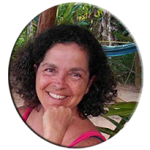 | Mônica Bahia Schlee | Landscape architect and urban planner, PhD in Architecture - Federal University of Rio de Janeiro (2011); MSc in Landscape Architecture - Pennsylvania State University (2002) and MSc in Environmental Structures - University of São Paulo (1999). Collaborating professor of the Professional Master in Design and Heritage of the Faculty of Architecture and Urbanism of the Federal University of Rio de Janeiro; co-coordinator of the New Heritage Approaches team of the Our World Heritage Movement; national councilor of the Institute of Architects of Brazil – IAB; member of the Brazilian Association of Landscape Architects – ABAP, of the International Council of Monuments and Sites – ICOMOS, and of various local social movements. |
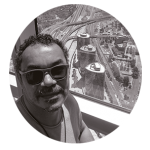 | Rubens de Andrade | Associate Professor at the Federal University of Rio de Janeiro. Professor at the School of Fine Arts (History of Art and Landscaping) and Graduate Program in Architecture - ProArq/UFRJ, Landscape Designer (EBA/UFRJ), Master in Architecture (ProArq -FAU/UFRJ) and Doctor in Urban and Regional Planning by the (Postgraduate Program of Urban and Regional Planning-IPPUR/UFRJ). Leader at CNPq of the Hybrid Landscapes Research Group – GPPH-EBA/UFRJ. |
Credits | Créditos

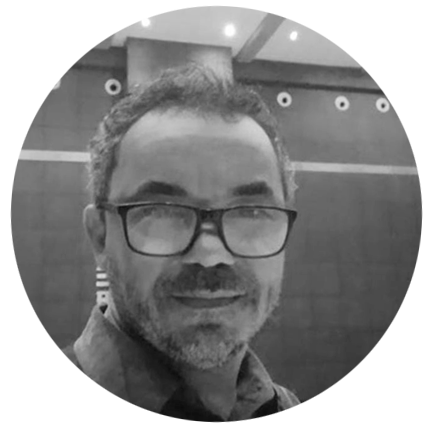
Professor Associado da Universidade Federal do Rio de Janeiro. Docente da Escola de Belas Artes (História da Arte e Paisagismo) e do Programa de Pós-Graduação em Arquitetura – ProArq/UFRJ, Paisagista (EBA/UFRJ), Mestre em Arquitetura (ProArq –FAU/UFRJ) e Doutor em Planejamento Urbano e Regional pelo (Programa de Pós-Graduação de Planejamento Urbano e Regional-IPPUR/UFRJ). Líder no CNPq do Grupo de Pesquisas Paisagens Híbridas – GPPH-EBA/UFRJ.
Publicações Paisagens Híbridas
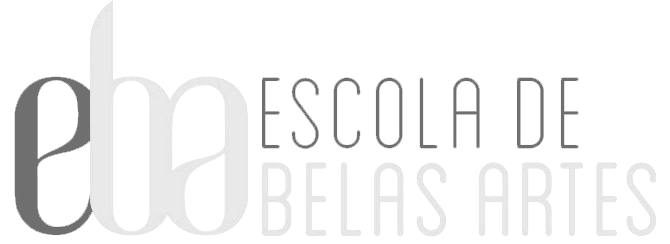

Toda obra individual ou coletiva publicado neste web site pertence ao seu autor ou ao Grupo de Pesquisa Paisagens Hibridas. © 2014 Grupo de Pesquisa Paisagens Hibridas - EBA - UFRJ
